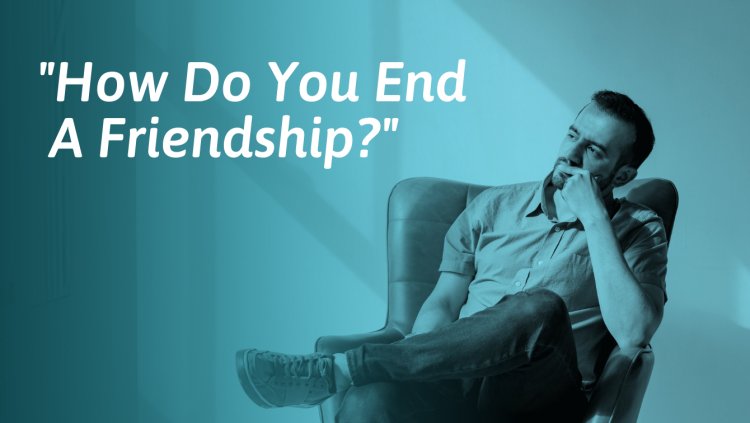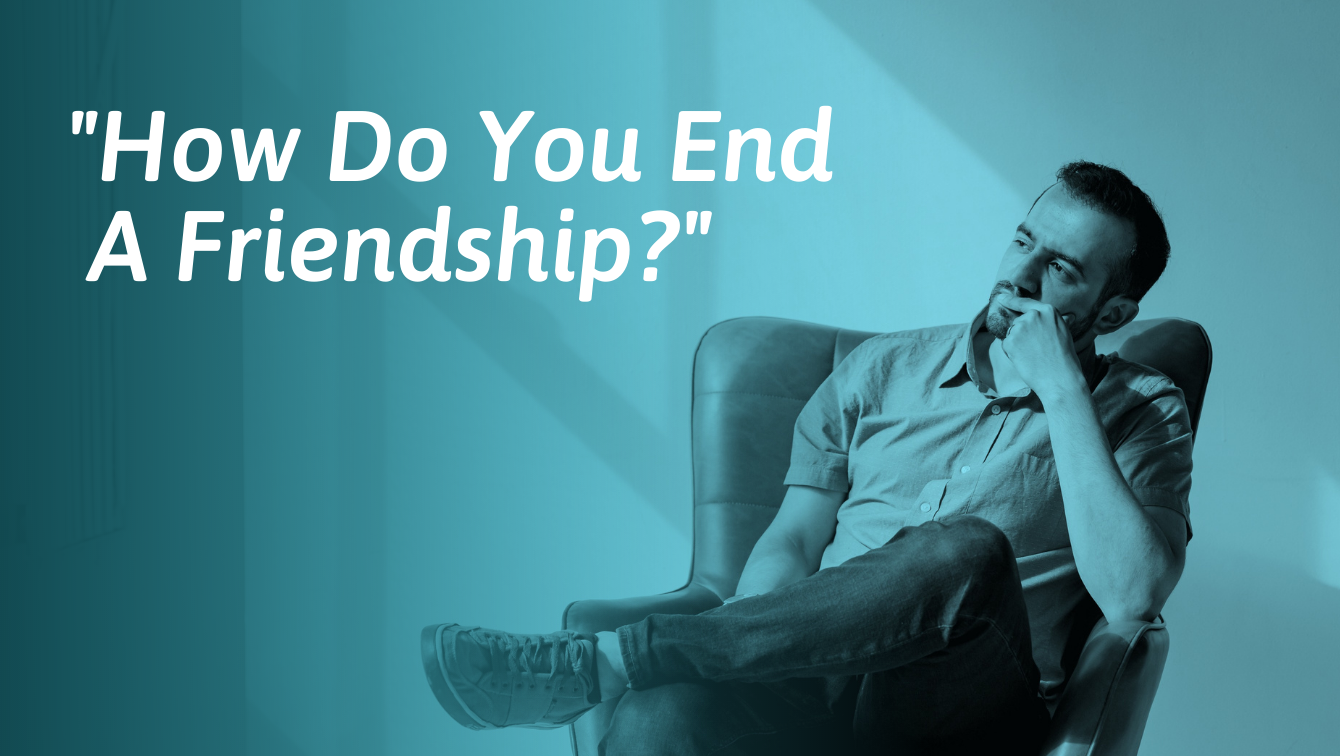How to End a Friendship
Becoming hostile or aggressive; Enlisting other friends to end the friendship for you; Seeking revenge (such as posting negative things about

You probably don't give much thought to the friendship ending when you first make a new buddy. Some of your buddies, though, will inevitably leave your life. However, few are schooled in the art of saying goodbye to a friend.
While there are more established norms for how to end a love relationship, this is not the case for friendships. This can leave you feeling stuck in an awkward limbo, unable to decide whether or not to continue being friends with the individual in question.
Reasons for Ending a Friendship
It's important to think carefully about why you don't want to be friends with a certain individual before deciding how to break up with them. As you move on from the friendship, this can help.
Keeping a diary to record your emotions is one strategy for accomplishing this. This provides you with a protected environment in which to express your ideas before sharing them with others, which you may like to delay until you have given them careful consideration.
Change of circumstances:
Life has taken a turn, and the two of you no longer share common ground such as a place of employment or an educational institution.
Increased distance:
Because of increased distance, you and your ex no longer see each other as frequently as you once did. This could be because you've grown apart in terms of interests or commitments, or because one of you has physically moved.
Mental health reasons:
Friend's mental illness causes them to be dishonest or critical rather than supportive. The friendship may have lost its luster, or you may have grown apart.
Recognizing a Toxic Friendship
In a healthy relationship, both partners put in and receive the same amount of effort. One partner may take advantage of the other more frequently than the other gives in a toxic relationship. When you next interact with this person, pay close attention to how you feel during and after your time together.
- Toxic friendship characteristics include:
- Your friend is uninterested in you and your life, and they never show any sign of caring.
- Usually they will try to dominate you by lying, manipulating, or both.1
- They don't back you up or show up when you need them. They can't be counted on.
- They make you feel unimportant or unappreciated.
- After being around them, you feel emotionally depleted.
You should give the friendship another shot if spending time with this individual makes you feel good and provides you energy. You may be in a toxic relationship if the negative effects they have on your life significantly outweigh the positive ones.
Healthy Ways to End a Friendship
When deciding to discontinue a friendship, you can do one of four healthy things. Combinations of these tactics are possible.
The Gradual Fade-Out
Reducing your time spent together socially is one method of letting a friendship end on both parties' terms.2 This is analogous to unpicking a seam instead of ripping apart a garment. If you don't feel up to confronting the person, if you know they won't listen or accept what you have to say, or if the relationship is toxic, you may want to consider gradually withdrawing your friendship with them.
:max_bytes(150000):strip_icc()/how-to-end-friendship-4174037-final-4dcc4767426449dbb7c987cc834ebe31.png)
Distancing oneself from a friend is typically done to prevent further hurt. You avoid confronting each other about your feelings by making yourself unavailable or avoiding getting together. You might, for example, avoid making phone calls in favor of texts, disappear from the other person's social media (by unfollowing them or muting their account) for an extended period of time, respond slowly and with short answers, etc.
Having a Talk
You may need to have a chat with your friend if you decide that a gradual fade-out is not acceptable or if it turns out to be ineffective. It's not unlike a conversation you may have with your significant other to discuss your feelings and plans for the future of your relationship.
Step 1:
First, propose a coffee date for a talk. You might want to avoid talking to them in person if you fear for your bodily or mental safety.
Step 2:
Two, focus on what you want to accomplish by giving this presentation. Consider your end goal(s). Do you need to make up for a misunderstanding, clarify your feelings, settle an old score, or establish ground rules for your relationship? The goal of the meeting, whatever it may be, must be established in advance.
Step 3:
Third, make a comment that encourages further discussion. I've seen some trends in our friendship over the past few months, and they've been disturbing me," you might remark. I was hoping we could have a conversation about it.
Ending Things Immediately
If your friendship is failing to provide for your requirements, you need only say so. Best wishes to the other person in the future. An advantage of this method of ending a friendship is that it allows you to be direct and honest about your feelings, rather than burying them. However, it can be uncomfortable to approach someone in this way.

This tactic is best used when saying farewell to someone you've known for a long time and feel deserves a proper send-off, or when dealing with someone who has done something so terrible that it would be impossible to ignore. It's possible that you may eventually need to say, "Goodbye, I must go." If it helps, write a little play that encapsulates how you feel.
What to Expect When a Friendship Ends
Even if you and your ex-friend both have good reasons for ending the friendship, that won't make dealing with the emotions that come with it any easier.
If you feel sorry about the loss of a friendship, that doesn't mean you made the incorrect choice. It can assist to mentally prepare for the end of the friendship by considering both your friend's likely reaction and your own feelings following the breakup.
For Yourself
A friendship's potential for survival or transformation may come as a pleasant surprise. It's fine to let your friend know that you need some time to think about it and that you'll get back to them as soon as you can. Get some distance and consider your alternatives. Don't let your friend's feelings pressure you into doing anything you're not sure you want to do.
If you feel your buddy is trying to influence you into keeping the friendship alive, you may decide to end it over the phone or over text message. You are under no obligation to argue with them if they reject your verdict. You can end the call, send your best wishes, and then block the number.












